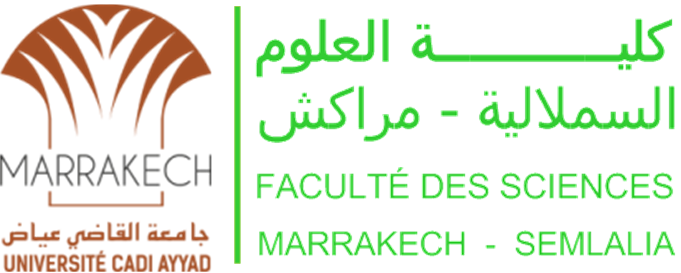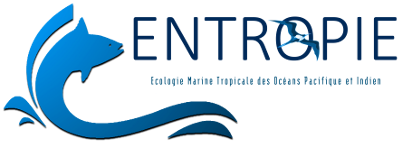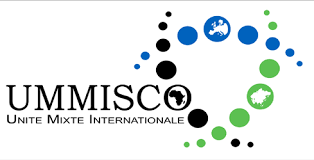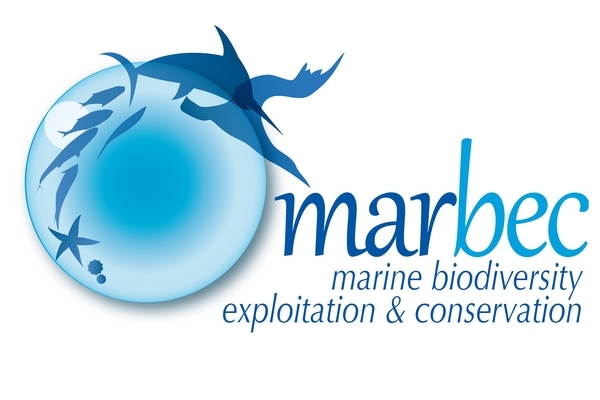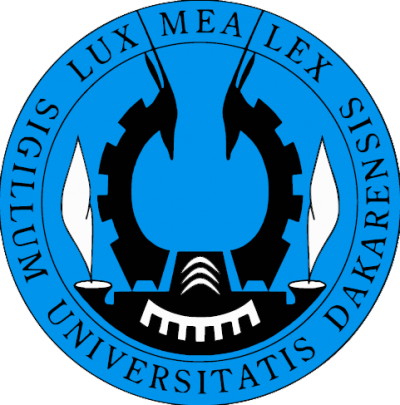AIME
AIME project : Artificial Intelligence for Marine Ecosystems
Project overview
AIME project addresses three major scientific challenges,
- combining or performing hybridization of AI techniques to significantly improve the accuracy of biodiversity indicators,
- providing at multiple scales several indicators that capture different facets of marine ecosystem health including pressure assessments,
- combining all these facets/indicators into an integrated model able to explain and forecast the spatio-temporal dynamic of marine biodiversity within targeted case studies. AIME considers diverse data including underwater images and videos, environmental DNA samples, GPS coordinates and acoustic telemetry data.
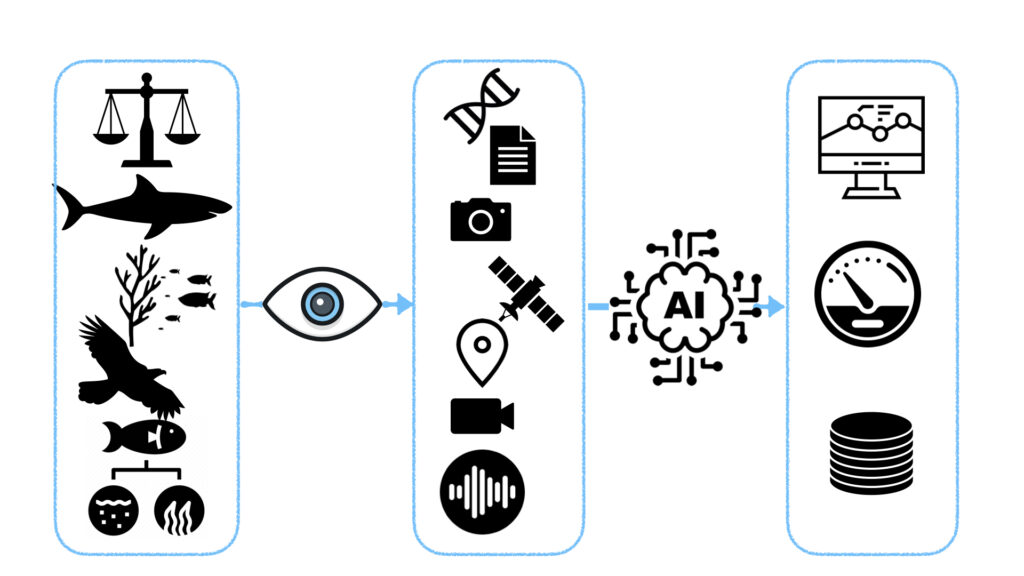
Main objectives
AIME project is structured in 6 scientific WPs. WPs 1-5 rely on different sensors to assess indicators of the state of marine ecosystems at different scales. These indicators are based on natural habitat dynamics (coral reef, mangroves, seagrass), pressure intensity (populated areas), legal environment (automatically extract information from legal texts), diversity (environmental DNA), species abundance (identification and census) and movement pattern of megafauna. Those indicators will feed WP6, dedicated to designing an integrative model aiming at providing accurate estimation and prediction of marine biodiversity in relation to current and future pressures.
Specific AI techniques will be used in each WP (symbolic and subsymbolic approaches, machine learning, probabilistic models, sometimes with hybridization between). Among the AI methods used, we can mention deep learning, knowledge and structured base/Ontology, Natural Language Processing, machine learning , Location Based Networks, Dynamic Bayesian Networks.
This project focuses on marine coastal biodiversity in two specific zones: the Mediterranean sea and the Pacific ocean, with a specific focus on the EEZ of New-Caledonia (1,5 millions km2). Our consortium has access to a large array of unique ecological datasets, collected over several decades as part of previous research projects, to which is added open access data provided by the scientific community. The proposed research aims to assist decision-making in the management strategies of coastal ecosystems and the services they provide to humans.
The consortium
Cadi Ayyad university
Cadi Ayyad university (UCA), established in 1978, is a public Moroccan university ranked by the Times Higher Education among the 100 best universities which have less than 50 years of existence. Researchers representing UCA within AIME belong to the computer science department of the faculty of sciences science, which is the first computer science department to be created in Morocco in the early 1990s. UCA is the lead entity of the project. Its researchers are co-leaders of WP4 and 5, they participate in WP3 and 6, and are co-supervisors of 3 thesis projects.
Entropie
ENTROPIE is a Mixed Research Unit aiming at better understanding how marine and insular ecosystems in the tropical Indo-Pacific work in the context of climate warming. The team develops research programs on tropical marine and insular ecosystems and on their evolution under natural and anthropic pressures at various spatial and temporal.scales.
ENTROPIE team brings their expertise in marine ecology and artificial intelligence, contributes in the project coordination, in the data management, directly leads WP1, WP4 and WP6, and is co-manager and co-supervisor of several theses.
UMMISCO
UMMISCO focuses on the modeling of complex systems using mathematics and informatics. It is an International Mixed Research Unit accross 7 academic institutions in France, Morocco, Senegal, Cameroon and Vietnam. UMMISCO designs mathematics and informatics modeling methods and tools aiming at better understanding emerging dynamics in “complex systems”, at sketching their most probable scenarios of evolution, and at supporting decision making regarding sustainable development.
UMMISCO participates in the project’s overall coordination, bringing its expertise in machine learning and in deep learning. It leads WP2, substantially contributes in WP1, 3 and 6, and plays a key role in the process of setting up the consortium by liaising between UMMISCO teams in Africa and France. UMMISCO representatives are co-supervisors of several theses.
MARBEC
The purpose of the MARBEC Research Unit is to produce and disseminate knowledge, train scientists and provide expertise in the field of marine biodiversity and its uses, mainly in the Mediterranean and in tropical marine ecosystems. MARBEC played an important role in the process of setting up the AIME consortium, is part of the coordination committee, ensures the co-coordination of WP2 and 4, the co-direction of two post-docs and the co-supervision of a PhD thesis.
Université Yaoundé 1
The University of Yaoundé I (UYI) , created from the higher education reform in Cameroon in 1993 is a public institution of a scientific and cultural nature endowed with legal personality. It is located in the city of Yaoundé, the political capital of Cameroon. It is made up of several high schools and faculties. UY1 participates in the AIME project through the IDASCO research team of the Department of Computer Science of the Faculty of Sciences. This research team is composed of members of the UMMISCO unit of the IRD. UY1 was the first headquarters of the international laboratory LIRIMA.
UYI contributes to AIME by participating in the coordination committee, in WP1, WP2 and in WP6, and by being co-manager and co-supervisor of several theses.
UGB
Gaston Berger University (UGB) prides in being a center of excellence regarding innovative projects, in coherence with development strategies in Senegal and Africa.
With its expertise in machine learning, UGB contributes in WP3 and WP6, and is co-manager and co-supervisor of several theses.
UCAD
Cheikh Anta Diop University (UCAD) is the main university in Dakar. Founded in 1959 under the name Dakar University, it bears the name of historian and anthropologist Cheikh Anta Diop since 1987. It hosts students from several African and European countries, and numerous Senegalese executives have studied in UCAD.
UCAD contributes in AIME by participating in the coordination committee, co-coordinating WP3, participating in WP1 and WP6, and being co-manager and co-supervisor of several theses.
Others partners
LIM – UR

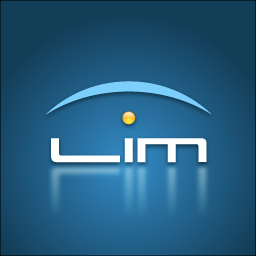
The University of Reunion (UR) is a French public institution of higher education and rechearch located on the island of Reunion in the heart of the Indian Ocean. Each year, it welcomes more than 15,000 students, offering them an attractive range of courses and a pleasant living environment.
The Computer Science and Mathematics Laboratory (LIM) of the University of Reunion is a host team (EA2525) made up of 25 teacher-researchers who work in three areas: didactics (EDIM), mathematics (MATHS) and computer science and its applications (ITA).
The LIM of the UR intervenes in WPs 3-6 by bringing its expertise in knowledge management based on ontologies for the hybridization of AI techniques in the field of reef biodiversity management, and more particularly on corals.
LEMAR

LEMAR is a resolutely interdisciplinary laboratory that brings together ecologists, biologists, biogeochemists, chemists, physicists and marine environmental lawyers. Its objectives are (1) to conduct work on fundamental research themes or themes of societal importance; (2) to contribute to achieving the objectives of sustainable development in countries of both the North and the South; (3) to provide innovations in connection with the economic world and results that support public policies; (4) to engage in interdisciplinary training in the field of marine and coastal sciences
It participates in the AIME project by co-coordinating the WP5 on legal indicators for the protection of the marine environment and by co-supervising a thesis.

